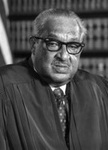JUDICIAL INDEPENDENCE v. JUDICIAL ACCOUNTABILITY: Prolegomenon to Defining Constitutionalism in the Fourth Century of the American Experiment
 Judicial independence has been prized in American jurisprudence since the inception of the Republic. No less a luminary than Alexander Hamilton insisted that “[t]he complete independence of the courts of justice” was nothing short of “peculiarly essential in a limited Constitution.” Three overlapping reasons explain the importance of judicial independence. First, the doctrine of the separation of powers requires the judiciary to be independent of the elected branches of government. Second, following the rule of law requires judicial independence. Third, in order for judges to tread in the service of justice, they must be impartial and fair in deciding cases. Neither impartiality nor fairness is possible if the judiciary is controlled by another branch. Accordingly, judicial dependence on the elected branches will prevent judges from serving justice, while a commitment to judicial independence helps fulfill the judicial role.
Judicial independence has been prized in American jurisprudence since the inception of the Republic. No less a luminary than Alexander Hamilton insisted that “[t]he complete independence of the courts of justice” was nothing short of “peculiarly essential in a limited Constitution.” Three overlapping reasons explain the importance of judicial independence. First, the doctrine of the separation of powers requires the judiciary to be independent of the elected branches of government. Second, following the rule of law requires judicial independence. Third, in order for judges to tread in the service of justice, they must be impartial and fair in deciding cases. Neither impartiality nor fairness is possible if the judiciary is controlled by another branch. Accordingly, judicial dependence on the elected branches will prevent judges from serving justice, while a commitment to judicial independence helps fulfill the judicial role.What exactly is "judicial independence"? For starters, it is fair, impartial, and honest adjudication motivated by a commitment to justice and the expression of justice in law. To achieve these virtues, judges must be free to decide questions of law and fact without threat of retaliation either physically, financially or occupationally. It's not obvious how judges or courts can be independent if any of these factors are not strongly embedded in a legal system. A further factor is that judicial decisions should not be overturned or denied effect surreptitiously or arbitrarily. These critical factors of judicial independence are necessary for courts to function effectively at all.
How do these critical factors bear on a system of constitutional democracy? Do checks on the judiciary compromise judicial independence? Well, if any constraint on the judicial power compromises judicial independence then judicial independence should be compromised. This raises the question of which sorts of constraints on the judiciary are permissible?
 The answer depends entirely on what other values the constitutional democracy prizes. For example, in a constitutional democracy accountability should be prized because democracy is based on the consent of the governed. Without accountability, there can be no consent. Consequently, judicial independence and judicial accountability seem to pull in opposite directions. The more independent judges are, the less accountable, and the more accountable judges are the less they are independent. Is there any way to avoid this quandary? Some accommodation between these two important values is necessary. But what kind of accommodation is appropriate? The values of judicial independence and judicial accountability exist on a spectrum where one extreme representing complete independence, while the other complete accountability. The former means that judges are above the law. The latter that judges are under the thumb of the legislature or some other external, non-judicial force.
The answer depends entirely on what other values the constitutional democracy prizes. For example, in a constitutional democracy accountability should be prized because democracy is based on the consent of the governed. Without accountability, there can be no consent. Consequently, judicial independence and judicial accountability seem to pull in opposite directions. The more independent judges are, the less accountable, and the more accountable judges are the less they are independent. Is there any way to avoid this quandary? Some accommodation between these two important values is necessary. But what kind of accommodation is appropriate? The values of judicial independence and judicial accountability exist on a spectrum where one extreme representing complete independence, while the other complete accountability. The former means that judges are above the law. The latter that judges are under the thumb of the legislature or some other external, non-judicial force.Which devices might bring these two ends closer to the middle? Let me list some of these devices without presently explaining precisely how they bring independence and accountability closer together: term limits, congressional overrides, modifying the court's jurisdiction, electing judges, and so forth. Historical context is critical here. No one in the United States would contend that Art. V compromises the independence of the Court. And indeed, Art. V provides in principle at least a last ditch effort to hold the Court accountable. In
 American constitutional jurisprudence, the question of whether a procedurally adequate constitutional amendment can be unconstitutional arises infrequently. One such example occurred in the flag desecration cases. Critics of a flag burning amendment argued that it would play havoc to the First Amendment. Just how our expansive freedom of speech protection would jibe with an amendment permitting the prohibition of the significant symbolic speech of desecrating a flag, is unclear. Still few, if any, contended that it would be unconstitutional. Institutional protections must be in place to enable judges to serve independently. American constitutionalism provides federal judges with cushy, well-paid, permanent tenure to insulate them from conflating self-interest and moral principle. Because judges are insulated in this hallowed refuge inside American government, they are left unfettered to examine the Constitution and the facts of particular cases without thought of personal gain or personal protection. The ordinary concerns of legislators—political support—are irrelevant to the decisions of judges.
American constitutional jurisprudence, the question of whether a procedurally adequate constitutional amendment can be unconstitutional arises infrequently. One such example occurred in the flag desecration cases. Critics of a flag burning amendment argued that it would play havoc to the First Amendment. Just how our expansive freedom of speech protection would jibe with an amendment permitting the prohibition of the significant symbolic speech of desecrating a flag, is unclear. Still few, if any, contended that it would be unconstitutional. Institutional protections must be in place to enable judges to serve independently. American constitutionalism provides federal judges with cushy, well-paid, permanent tenure to insulate them from conflating self-interest and moral principle. Because judges are insulated in this hallowed refuge inside American government, they are left unfettered to examine the Constitution and the facts of particular cases without thought of personal gain or personal protection. The ordinary concerns of legislators—political support—are irrelevant to the decisions of judges.However, the same insulation from worldly pressures makes judges unreachable. Although judges must typically articulate the reasons for their decisions, they are never compelled to give a complete account of their reasoning. No one ever formally challenges judges to explain themselves.
 No force exists to discipline judges by either removing them or reversing their decisions. The people must simply acquiesce to judicial opinions and the reasons judges give in their formal opinions. It is one thing to be permitted to decide cases independently of threats to one’s life or liberty. It is quite another thing not to have to account for the errors and consequences of one’s decisions. Unlike NFL coaches, CEOs, and elected officials, little judges do can disqualify them from continuing in office or from repeating the same mistakes indefinitely. Hence, for all practical purposes, judges are never required to effectively account for their decision-making at all.
No force exists to discipline judges by either removing them or reversing their decisions. The people must simply acquiesce to judicial opinions and the reasons judges give in their formal opinions. It is one thing to be permitted to decide cases independently of threats to one’s life or liberty. It is quite another thing not to have to account for the errors and consequences of one’s decisions. Unlike NFL coaches, CEOs, and elected officials, little judges do can disqualify them from continuing in office or from repeating the same mistakes indefinitely. Hence, for all practical purposes, judges are never required to effectively account for their decision-making at all. The appropriate institutional design of the courts should discourage judges from acting in partisan or otherwise self-interested way. However, self-interest is not the only vice to guard against. Completely conscientious decision-makers can and do wreck havoc not because they seek an advantage to their material good, but rather because their sincere convictions are unreasonable or in some other way incompatible with the Constitution. Indeed, judicial independence without accountability might tempt otherwise reasonable people to identify their own sincerely held convictions with what they believe to be constitutionally permissible. Democratic government is
The appropriate institutional design of the courts should discourage judges from acting in partisan or otherwise self-interested way. However, self-interest is not the only vice to guard against. Completely conscientious decision-makers can and do wreck havoc not because they seek an advantage to their material good, but rather because their sincere convictions are unreasonable or in some other way incompatible with the Constitution. Indeed, judicial independence without accountability might tempt otherwise reasonable people to identify their own sincerely held convictions with what they believe to be constitutionally permissible. Democratic government is  designed with checks and balances, not only to protect ourselves from scoundrels, but also to protect ourselves from well-intentioned individuals who simply have erroneous conceptions of American constitutionalism or who have become intoxicated by their own alleged insight and brilliance. The only mechanism for dealing with this problem in a republican democracy is for there to be checks on all governmental decision-makers. Hence, an uncritical adherence to judicial independence conceals one of the more glaring defects in American judicial practice: the absence of effective accountability. Absent effective accountability prevents consent from legitimizing judicial practice.
designed with checks and balances, not only to protect ourselves from scoundrels, but also to protect ourselves from well-intentioned individuals who simply have erroneous conceptions of American constitutionalism or who have become intoxicated by their own alleged insight and brilliance. The only mechanism for dealing with this problem in a republican democracy is for there to be checks on all governmental decision-makers. Hence, an uncritical adherence to judicial independence conceals one of the more glaring defects in American judicial practice: the absence of effective accountability. Absent effective accountability prevents consent from legitimizing judicial practice.How should we now understand the concepts of "judicial independence" and "judicial accountability"? Only by taking judicial accountability seriously--realizing that it must intrude to some degree on judicial independence--will we be able to properly define constitutionalism in the fourth century of the American experiment.










1 Comments:
It is an interesting article.Please give more clarifications about the methods how the gap between the extreme principle can be narrowed.
Post a Comment
<< Home